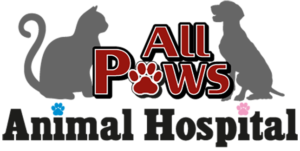Protecting Puppies & Kittens: Poison Risks for Young Pets

Puppies and kittens are bundles of energy and curiosity, but their playful nature can make them especially vulnerable to poisoning. Their small size and lack of experience increase the risk of toxin exposure. March is Pet Poison Prevention Month, a time to explore how to keep these young members of the pet family safe. All Paws Animal Hospital understands the needs of young pets and wants to help pet owners prevent poison-related emergencies.
Why Young Pets Are More Susceptible to Poisoning
There are several reasons why puppies and kittens face a higher risk of toxicity. Young pets investigate the world with their mouths and noses, leading them to lick, chew, or eat unsafe items. Due to their low body weight, even a small amount of a toxin can have a significant effect on their systems. Puppies and kittens may be less equipped to fight off complications from toxin exposure due to their immune systems not being fully developed. Your pet’s liver and kidney functions are also still maturing, making it harder to eliminate harmful substances.
Common Household Toxins That Can Harm Puppies and Kittens
Some everyday substances are especially dangerous for young pets.
- Cleaning products such as bleach, floor cleaners, and toilet bowl tablets can cause burns and organ damage.
- Human medications or medications that were prescribed for your adult pets can be deadly, even in small doses.
- Toxic foods like chocolate, xylitol, grapes, onions, and garlic can be very harmful.
- Rodent bait and insecticides often attract curious pets due to their scent or flavor.
- Toxic plants including lilies, azaleas, and sago palms can cause severe or fatal reactions.
- Essential oils like eucalyptus and citrus oils are particularly harmful to kittens but may also harm puppies.
For additional information on specific toxic foods, plants, and household items, pet owners of puppies and kittens can visit the ASPCA Animal Poison Control website.
Steps to Reduce Pet Poisoning Risks
You can reduce the risk of poisoning by making a few adjustments. Keep all chemicals and medications out of reach. Use baby-proof locks and close cabinets. Avoid leaving food on counters or tables, as young pets may be tempted to grab leftovers. Secure all trash cans; a tipped-over trash bin can expose your pet to all sorts of dangers. Opt for pet-safe plants and cleaners by doing research before buying anything new. Supervise your puppy or kitten’s playtime, especially in new environments or outdoors. Teach “leave it” and “drop it” commands as early as possible to keep your pet from swallowing something toxic. Limit access to high-risk zones like kitchens and garages by using baby gates or closed doors.
What to Do If a Puppy or Kitten Eats Something Toxic
Young pets can deteriorate quickly after toxin exposure, so take action immediately.
- Identify the toxic substance, approximately how much your puppy or kitten ate, and the time.
- Do not attempt home remedies or induce vomiting. Always wait for professional instructions.
- Call your veterinarian or a poison control number like the Pet Poison Helpline.
Keep Puppies and Kittens Safe from Poisoning
Puppies and kittens need extra protection from common household toxins. Their size, curiosity, and developmental stage put them at greater risk, but with a few proactive steps, you can dramatically reduce those dangers. March is Pet Poison Prevention Month, so All Paws Animal Hospital encourages you to evaluate your home through the eyes of a young pet. If you need guidance on creating a safe home for puppies and kittens and are a pet owner in Mondovi, Eau Claire, or neighboring areas, book an appointment with us for personalized tips and safety recommendations.


